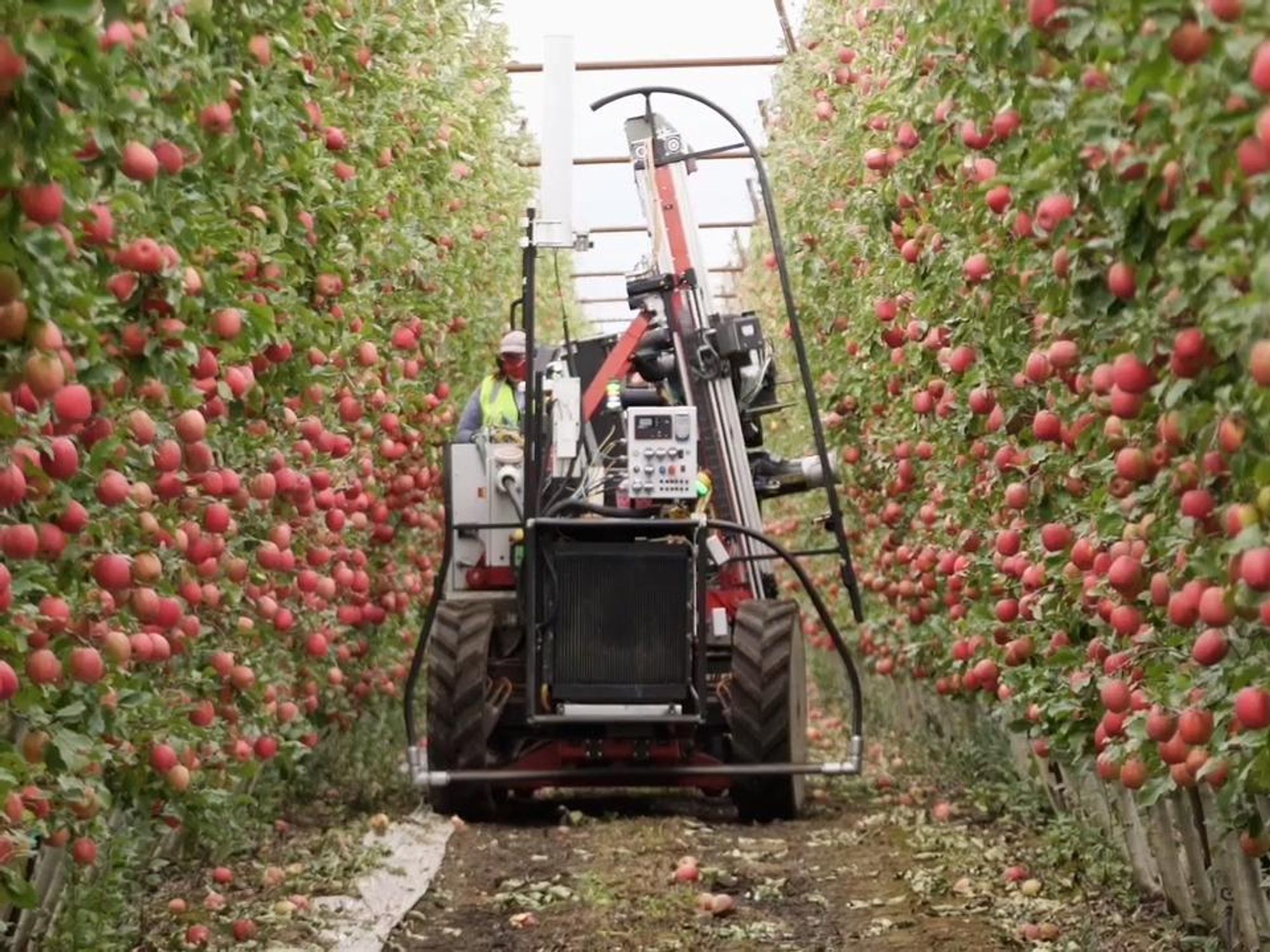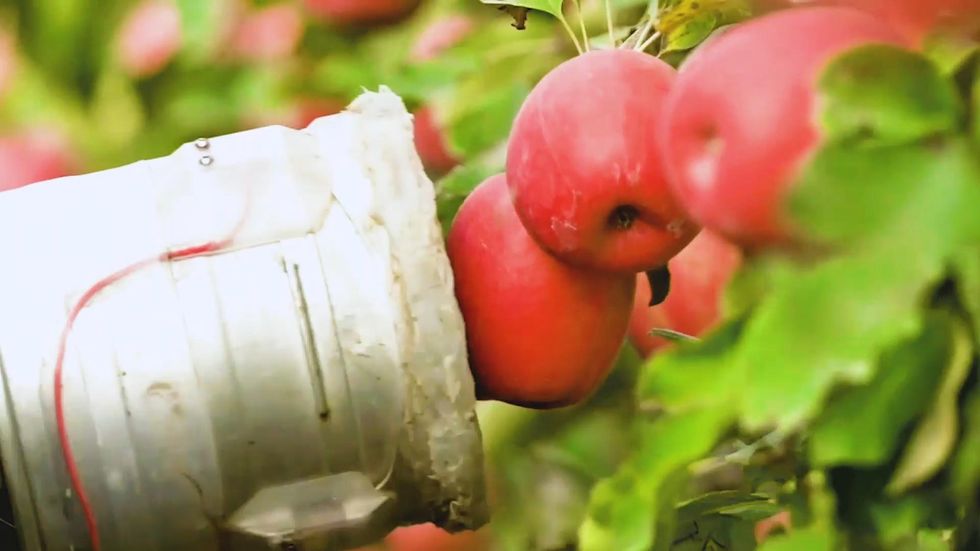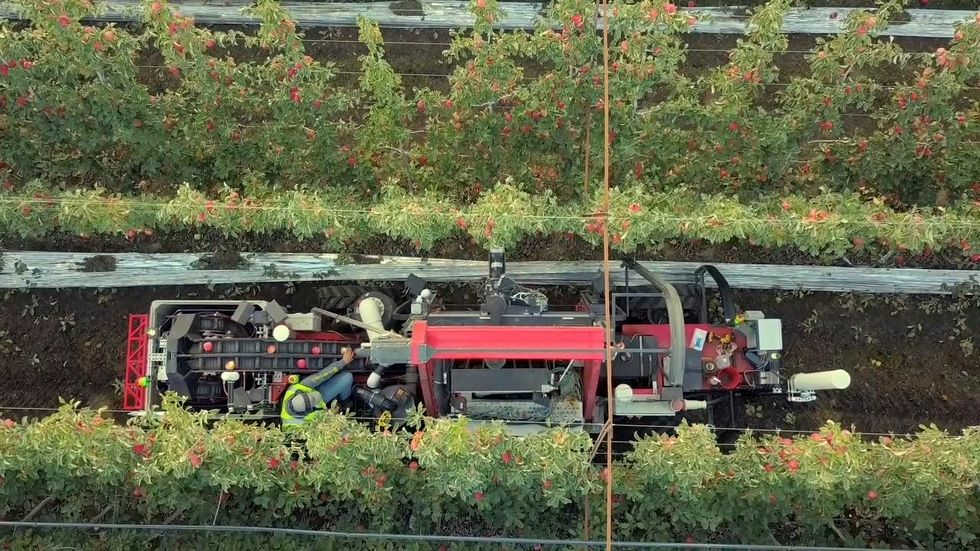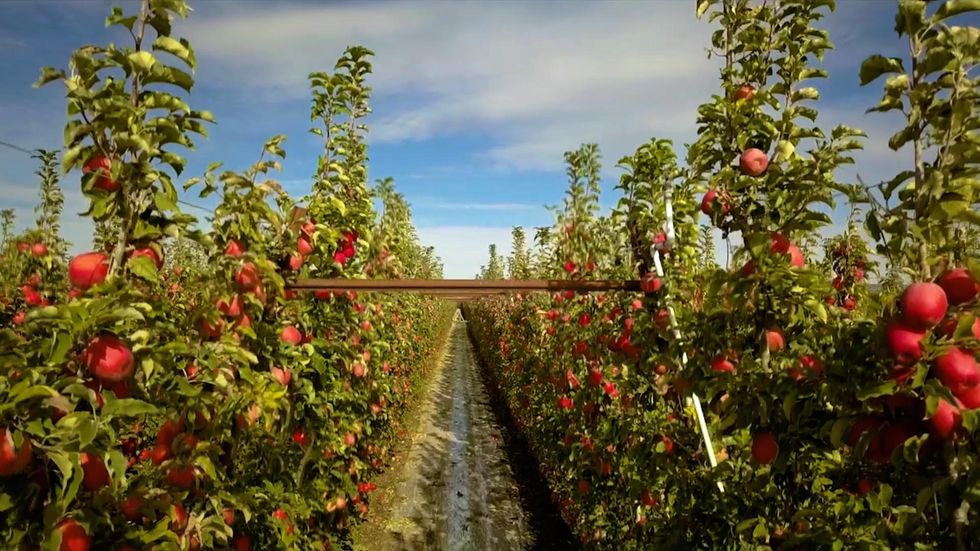Will Apple-Picking Robots Save Agriculture—Or Ruin Farm Workers?
David Shultz reports on clean technology and electric vehicles, among other industries, for dot.LA. His writing has appeared in The Atlantic, Outside, Nautilus and many other publications.

As part of its effort to “disrupt” the food industry supply chain, Santa-Monica based automation incubator Wavemaker Labs has added—and revived—a new piece of technology that promises to change the game for apple orchards.
In October, Wavemaker acquired the intellectual property behind agtech startup Abundant Robotics’ autonomous apple-picking technology. Wavemaker is now relaunching the technology under the name Abundant Robots and taking aim at a major segment of the agriculture industry—one that generates around $5 billion annually for American apple farmers, according to the U.S. Department of Agriculture.
Hayward, Calif.-based Abundant went under last year, citing difficulties “develop[ing] the market traction necessary to support its business during the pandemic.” Despite that failure, Wavemaker Labs founder and CEO Buck Jordan was convinced that the technology behind Abundant was solid, even if the startup’s execution ultimately failed.
“COVID essentially just killed their harvest season and killed the progress they needed to make in order to get the next round of financing,” Jordan told dot.LA. “[Abundant] kind of had to invent everything from scratch, and they’ve done a really great job. But there’s a lot of [technology] that’s cheaper off the shelf that can be used and swapped in.”

Jordan, who is fond of statistics, notes that around 87 million metric tons of apples are produced globally each year—making it “far and away, in terms of tree fruit, the biggest category that there is.” He adds that harvesting labor accounts for roughly two-thirds of the cost that consumers pay for an apple at the grocery store, with farming costs only projected to grow in the coming years.
This is where Wavemaker sees the opportunity for Abundant Robots. The IP it acquired essentially constitutes a vacuum-suction apple-harvesting system that operates in tandem with AI-backed image recognition software. In other words, the robot can eye an apple tree and suck the ripe apples right off the branch.
The delicate nature of the suction technology was a key selling point for Wavemaker. “[With] apples, you’ve got to be really ginger with them,” Jordan said. “If you bruise an apple, the value of that particular apple goes down—and now it’s applesauce instead of being sold in Whole Foods.”
Abundant Robots is now looking to raise $20 million via crowdfunding to improve on its existing prototype. If it hits its goals, the next iteration of the machine should cost under $100,000 to produce and be able to pick an apple every one-to-1.5 seconds. That’s likely quicker than even the fastest human pickers, according to Jordan—and of course, the machine never gets tired.
Abundant’s technology may be good news if you’re an apple grower, but probably not if you’re an apple picker. Aviva Chomsky, a professor at Salem State University in Massachusetts who studies immigration and migrant labor in the U.S., believes that automation will likely exacerbate power imbalances between agricultural workers and their employers.

“In an ideal socio-economic system, technologies could be used for the benefit of the many—but in our agricultural system, technologies are generally used for the benefit of the few and to the detriment of the many,” Chomsky told dot.LA.
While Wavemaker and others in the autonomous agriculture space are positioning their platforms as solutions to an ongoing labor shortage, labor advocates say their technologies could prove disastrous for America’s roughly 2.5 million farm workers and its rural farming communities.
“There is what I perceive to be a very insincere narrative—or perhaps more graciously, an incomplete narrative—about what’s really happening,” according to Erik Nicholson, a consultant and former national vice president of the United Farm Workers labor union. “That, to me, is about as sincere as saying Facebook is about connecting friends and family.”
Like Facebook, Nicholson thinks much of the actual value in technology like Abundant Robots’ machines will come from data collection. As tech companies are able to put more intelligent machinery on farms, they’ll be able to collect data on elements such as soil moisture, crop productivity and temperature.

How tech companies choose to leverage that data remains to be seen. They could provide farmers with insights into how to grow more crops in a more efficient and sustainable manner. Nicholson, however, expects that the trend toward automation will come at a cost to farmers.
“Whoever writes the algorithms and has access to the data has tremendous power,” he said. “Do we want to just hand that over to the VCs in Silicon Valley and say they’re going to make the determinations about what’s growing, how and when?”
Critics agree that there’s no easy solution that simultaneously keeps food prices low, saves growers from going bankrupt and pays farmworkers a living wage. Yet as automotion promises to upend the agriculture industry’s status quo, they argue that farm workers at least deserve a seat at the table as billions in investment capital pour into the industry.
Otherwise, Nicholson said he fears that “we’re going to see an ongoing extraction of wealth into the hands of investors—who largely do not live in [farming communities like] Mabton, Wash. or Delano, Calif.”
- Meet Carry, the Robot That Aims to Make Picking Produce Easier for ... ›
- WaveMaker Labs' Buck Jordan on Robotics and Restaurants - dot.LA ›
- Inside Wavemaker Labs' Push to Automate Restaurants - dot.LA ›
- Molear, Proterra and Plenty Are Bringing Agtech Back to LA - dot.LA ›
- Moleaer, Proterra and Plenty Are Bringing Agtech Back to LA - dot.LA ›
David Shultz reports on clean technology and electric vehicles, among other industries, for dot.LA. His writing has appeared in The Atlantic, Outside, Nautilus and many other publications.





 Image Source: Skyryse
Image Source: Skyryse